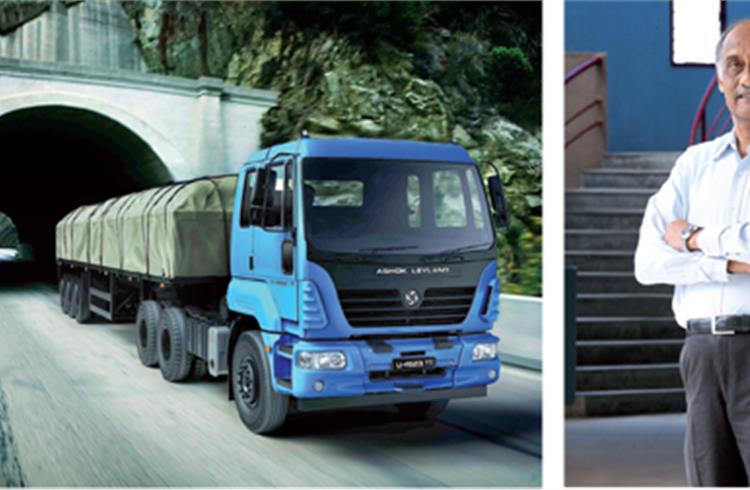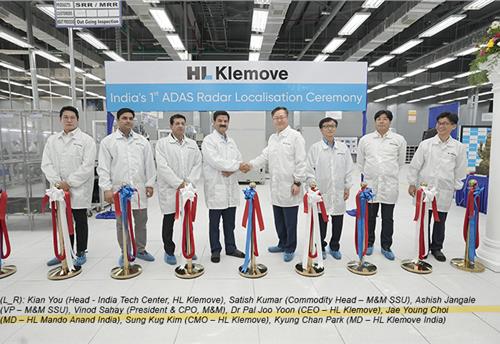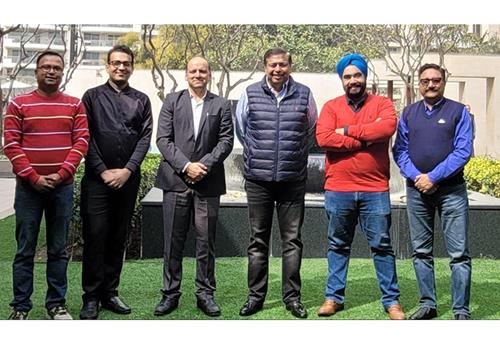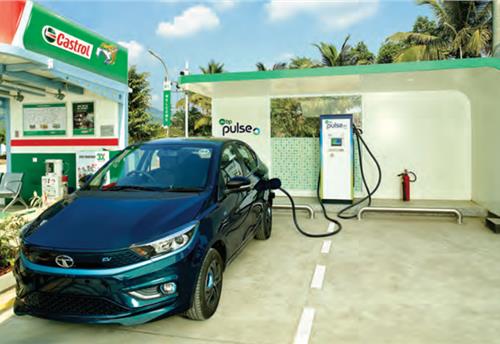2012 South India Special: Ashok Leyland trains to reign
The company is also in talks with the governments of Uttar Pradesh, where Maruti already has the mandate to set up one institute in Rae Bareily, and Punjab.
Critically for the country’s flagging economy, the International Road Federation put the cost to the economy of road accidents at more than Rs 1 lakh crore in 2011. That’s a loss of $18 billion, or 1 percent of the GDP. And the bulk of it stems from the commercial road transport sector, ironically the very backbone of the economy.
For some years now, the driver has been the fall guy for a “majority” of road accidents. The real reason for poor road safety, though, is the general lack of traffic education, compounded by the government’s own farcical licensing procedures — and the poor design and execution, and therefore the dismal safety performance, of most of India’s major arteries, and most all of its numerous secondary and tertiary roads.
And so, to be seen to be addressing the issue of safety, the government came up with a scheme to promote “model” driving-skills training institutes in the 11th plan (2007–11). Interested states were required to earmark a minimum of 10 acres of land; those that applied in partnership with vehicle OEMs were preferred; and the Centre committed to finance the infrastructure.
The scheme laid down in significant detail the specifications of the buildings, equipment, and driving range; the ‘model’ was Ashok Leyland’s pioneering driver training institute in Namakkal. Fourteen states signed on and were given grants for the purpose, but not one of them has anything to show for it yet. Meanwhile, though the scheme had been published in 2007, the OEMs were totally ignorant of its existence till, curiously enough, Ashok Leyland’s K C Balasubramanian(pictured) discovered it by accident in April 2010 when he approached Kamal Nath soon after the then transport minister publicly expressed a desire to have one such institute in his own constituency, Chhindwara.KCB, as the truckmaker’s indefatigable assistant GM (sales and marketing) is called by his admiring staff and colleagues, immediately became the scheme’s most enthusiastic promoter, personally visiting “every state government” during the course of 2010 to pitch for partnerships.
Ashok Leyland, of course, could boast impeccable credentials. For one thing, it had 15 years of valuable experience having set up the first institution in India that trained drivers scientifically in accordance with the syllabus laid down in the Central Motor Vehicle Rules 1989. Moreover, it had successfully turned the Delhi government’s institute in Burari around, having taken over the management of it in 2005.
 |
KCB’s tireless efforts paid off and four states took up his offer — Madhya Pradesh, Rajasthan, Haryana, and Orissa. The institutes in Kaithal (Haryana), and Chhatia (50km from Bhubaneswar) will begin operation before the end of this month, the one in Chhindwara by the end of next month, and Udaipur in December.
Meanwhile, being the only company to quote for a tender invited by Karnataka, Ashok Leyland will also set up two institutes in that state, in Bangalore and Dharwad, by March 2013. And KCB says he’s also in discussions with Punjab. Blindsided by its biggest rival, Tata Motors scrambled to counter with an incursion into Tamil Nadu, but that hastily approved project evidently fell through because of a planning oversight. The state government subsequently turned to – who else? – Ashok Leyland.
The company is also in talks with the governments of Uttar Pradesh, where Maruti already has the mandate to set up one institute in Rae Bareily, and Punjab, and KCB reports that the principal secretary (transport) of Maharashtra has agreed to work with it on a second institute in Maharashtra. The first institute in Pune, also the only one that Tata can claim to its credit, is a partnership with the Central Institute of Road Transport, the designated monitoring agency for the entire scheme! Talk about a conflict of interests…
To the next level
The Ministry of Road Transport & Highways is in the process of revising the guidelines of the scheme under the 12th plan and KCB, being a member of the task force engaged in this, has suggested that bigger states be allowed to have three or even four institutes, instead of one or, exceptionally, two under the present scheme. That would take the number of institutes to 100 in the plan period.
“The 10-odd institutes that will exist by the end of this financial year are not going to be enough. The government has to push this number up to 100 for the scheme to start being effective,” he says, referring to the dire shortage of truck drivers that, already today, is responsible for more than 10 percent of the country’s fleet lying idle.
“From now on we have to add nearly 200,000 new drivers every year to the pool. By 2014 this number may even go up to 240,000.”
That’s one side of the story.
Ashok Leyland has invested up to Rs 40 crore in Ashok Leyland Namakkal (ALN) so far, and though KCB makes it clear that the motivation is not to make money out of this endeavour, it is vital that the new institutes do not become investment sinks. But for them to start sustaining themselves as early as possible, he says, it’s necessary that the state governments make certain courses mandatory, such as the refresher courses at ALN that Tamil Nadu stipulates for professional drivers, or training for instructors of private driving schools.
The reason for this is that the basic “induction” course, the institute’s raison d’être and the one that uses the maximum of its resources, attracts no more than a handful of fresh trainees per batch even though, in Namakkal at least, Ashok Leyland subsidises the cost by up to 50 percent. Quite apart from the fact that the job description doesn’t inspire a whole generation of youth, the main cause for the lack of interest, KCB points out, lies in the way truck drivers are licensed.
The standard procedure is to become a cleaner, and get yourself a learner’s licence. On long hauls, the regular driver allows you to drive for 5km or maybe 10km at a time. After a month you go to a private training school, which ‘fixes’ a permanent licence for you. During this period you’ve earned a salary as a cleaner, and then you become a driver and earn a higher salary. If you have to train at ALN you’re earning nothing for three months, and you have to pay a fee besides.
“Major fleet operators tell me they want drivers, but they are unwilling to send people to me to train — they want drivers readymade. They would rather employ freshers as cleaners and pay them to work rather than spend money training them,” KCB says, adding that an offer he made the NamakkalTaluk Lorry Owners Association (NTLOA), the largest of its kind in the country, to train freshers for Rs 4,000, a fourth of the fee for ALN’s three-month foundation course (which itself is Rs 10,000 below cost), also evinced no response.
But KCB isn’t giving up, even though he knows the NTLOA will not sponsor a single candidate. His next offensive is to advertise that ALN has reduced its fee by 30 percent and will refer its students to the NTLOA, but with the sole condition that the candidates come with a reference from the association. “They are going to be handling vehicles worth Rs 35 lakh, plus expensive cargoes. We had a case five years back, when we recommended six of our trainees to an operator — one of them disappeared with a consignment of Rs 15 lakh, and the customer now blames us. That’s dangerous,” he explains. Regardless of whether the NTLOA bites, it’s still difficult to run the institute, any institute, at cost without government support. “We desperately need to create new drivers, so I am prepared to subsidise the foundation course as long as the government makes short-duration courses for professional drivers mandatory. It’s not that Ashok Leyland wants to make money out of those courses, but the fees can be slightly higher because they are compulsory.” The three-day theory course for drivers who want their licences endorsed for vehicles carrying hazardous goods and the one-day refresher for drivers of such vehicles, for example, are the most popular “mandated” courses at ALN. The Tamil Nadu government also requires instructors of private driving schools in Tamil Nadu to attend a one-week course at ALN every three years. Another thing that would attract trainees to ALN is if the Tamil Nadu STUs give them the same priority in recruitment as those passing out from the government’s own Institute of Road Transport (IRT) in Gummidipoondi enjoy. This is something KCB is actively lobbying for.
“The Tamil Nadu government already requires the 50 motor vehicle inspectors it recruits every year to attend one week of training at ALN, for which it also pays them. Since the authorities have given us this recognition already, all I’m asking is for them to stipulate that, in addition to IRT, ALN be declared a preferred source of drivers for the STUs. They are coming round to this view now, though it still has to go up to the CM. But I’m sure we will succeed,” he says.
Vision for a future
Beyond fulfilling a social responsibility for the last 18 years, Ashok Leyland’s driver training initiatives have been, and remain, the only strategic response to date by any truck OEM in India to the long-ignored ‘driver drain’ that threatens the very future of the transport community and, crucially, of the commercial vehicle industry itself.
But there’s also a tactical aspect. Driver training – the Ashok Leyland way – creates a “stickiness” for the brand among drivers, KCB admits. And this could well be the key to a breakthrough in north India that the company has long sought. “If you go to UP today, why is Ashok Leyland unable to corner a huge market share? It’s because the drivers are saying, we don’t want Ashok Leyland. If you come to Tamil Nadu, ask any bus driver whether he is prepared to drive a Tata vehicle — he will never. So our institutes do create a stickiness to the company and build our brand.”
The big breakthrough, though, will not happen till the company has at least one driver training institute in every state, as KCB is determined it will. In the mean time it has been notching up smaller victories, significant nevertheless, in the national capital. First: for the last four years, ALN has tested and selected applicants from all over India for driver’s posts with the Delhi Transport Corporation, putting an end to political favours and eradicating influence in the three waves of recruitment it has handled so far. And six months ago it was commissioned by the President of India’s office to select 36 drivers for the President’s estate.
Both the Delhi Staff Selection Board and the President’s office were extremely happy with the work it did. “The President’s office even gave us a letter stating the fact. They had been expecting complaints to come, but there were none,” KCB exults.
The highest commendation of all, however, came from a recent document from transport minister C P Joshi to the Planning Commission, he reveals — “The government said it would like to establish 100 institutes across the country like Ashok Leyland Namakkal.”
ELIOT LOBO
RELATED ARTICLES
Branded content: HL Klemove inaugurates first Local ADAS Radar Manufacturing Unit in India, marks a significant achievement in “Make in India” initiative
The inauguration ceremony was held in the presence of Vinod Sahay, President and CPO of Mahindra & Mahindra Ltd. and Dr....
BluWheelz to 'Green Up' logistics sector
With their EVs-as-a-service solution, the startup is playing it smart with costs and looking to electrify the entire seg...
BRANDED CONTENT: Spearheading the EV revolution in India
Jio-bp is a joint venture between Reliance Industries and BP PLC where both entities have married international expertis...





 By Autocar Pro News Desk
By Autocar Pro News Desk
 31 Jul 2012
31 Jul 2012
 5313 Views
5313 Views









